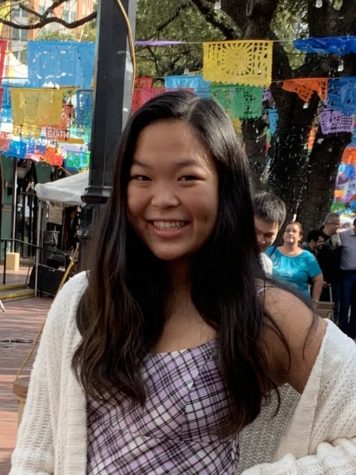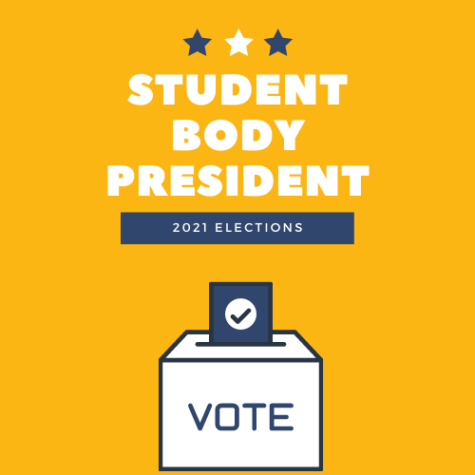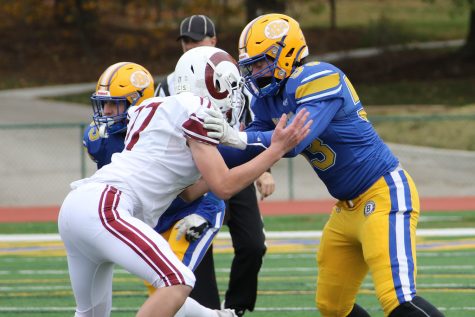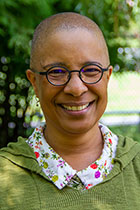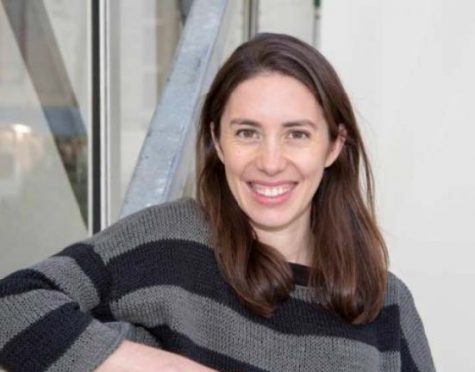Pushing for Political Action– On the Phone
September 28, 2020
With the recent COVID-19 pandemic and the Black Lives Matter protests, multiple JBS students have found themselves wondering how they can stand up for what they believe in and push to combat the issues plaguing the USA as racial and socio-economic barriers are becoming more and more visible. Over the summer, three students were especially passionate about making a difference in the world- even from home. Eva Kappas (‘22), Maddy Pass (‘23), and Yara Levin (‘22), in a bid to elect certain candidates to the US Congress, dedicated hours to phone-banking with the Sunrise Movement, a youth-led political movement for climate justice. In a nutshell, phone-banking is making calls to people in order to persuade them to join a campaign or vote for a certain candidate. Pass, Kappas, and Levin all agree that it is the most effective way to get votes, since the pandemic has halted many other traditional ways such as door-to-door canvassing. All three of them phone-banked for proponents of the Green New Deal over the summer for the July and August primaries. Pass outlines the process of phone-banking, by saying “When you phonebank for a Democratic political candidate, you’re calling registered Democratic and swing voters in the area they are running in.
You use a script provided by the candidate, and your main goals are introducing the candidate to voters who haven’t heard of them yet and helping supporters make a plan to vote on primary day, whether they are planning on voting in person or by mail. The script is interactive and connected with the automatic dialer, so when you click through it, you’re also giving the campaign important data about which votes they can count on and which issues voters are especially concerned about this election cycle.” Though it can be a nerve-wracking experience at first, phone-banking has proven to make a difference in electoral politics as it fuels campaigns that are 100% people-organized. Pass, Levin, and Kappas all volunteered for grassroots campaigns that were fully people-organized with no corporate funding, a major reason why they phone-banked for candidates such as Jamaal Bowman and Cori Bush. Kappas and Pass both started their phone-banking journey with Jamaal Bowman, a Democrat from the NY-16, in June while Levin started making calls in March with Marie Newman, a Democrat from the IL-3. However, as the movement gained momentum closer to primary day, all three of them spent hours phone-banking for St. Louis’s own Cori Bush, a Democrat from the MO-1.
Bush, a registered nurse, activist, and pastor, is currently the Democratic nominee for Missouri’s first congressional district. Kappas states that she was immediately drawn to her campaign because “Cori was an activist before she ran for Congress, and she said before the primary that even if she lost, she would continue doing as much as she could for her community. That really speaks to me and I’m sure a lot of other voters because when we want to elect our representatives, we don’t want someone who’s just running so that they can be in Congress and have that seat. We want someone who’s running so that their community can be represented in Congress and their community can have that seat, that outlet, to voice their needs.” Like Kappas, Levin and Pass recognized Bush’s working-class origins and innate ability to lead and inspire others as well as her support for the climate movement. All three of them decided that those traits were exactly what they wanted to see in a representative, thus prompting them to advocate for her through hundreds of phone calls.
Cori Bush is now the official Democratic nominee for MO-1, beating incumbent Lacy Clay who held the seat for over 20 years, signifying that all three of their phone-banking efforts paid off. Kappas describes her feeling after the primary results came in, saying that “It was the first campaign that I’ve worked on, but they were organized and so caring about every constituent, about volunteers. Every voter we called, we would ask like, how are you doing? Do you need any COVID resources? And that was really the primary ask of the conversation, even before asking if they would vote for Cori when we were making these calls. I was super surprised and I was definitely disbelieving that she could lose just because she’s done so much, and in the morning seeing that she won was just amazing because she really deserves to be there.” Levin also expressed her appreciation for Bush and adds that phone-banking truly brings power to grassroots campaigns, stating: “Now that she has the nomination, I feel energized and empowered. I know the presidential election is incredibly draining for many of us, but there are so many contests this November besides the one that decides who gets the White House. Somewhere in the country, there’s a down-ballot candidate you can get really excited about– a place where you can make a difference through people power.”Above all else, the three of them were surprised by the efficacy of phone-banking. Bush won by a field margin of 4,000 votes, which means that it really came down to the last hours of phone-banking calls. According to Kappas, the Bush campaign made around 4,000 calls in the last day, meaning that each and every volunteer call was crucial. Levin reinforces the fact that every call is important, adding “The margin of victory was a few thousand votes, which shows this race was on the streets and on the phones– every hour of volunteering made it happen. I feel so, so grateful for everyone who took the leap and made calls for the first time even though it can be scary and awkward.”
As with anything, doing something for the first time can feel extremely stressful, and phone-banking is not an exception as talking to strangers can be well out of someone’s comfort zone. However, Pass voices her advice for phone-banking in two words: “Do it!” She then adds that “Most people, after realizing you’re not a telemarketer and actually care about what they have to say, are willing to listen to you. If you’re able to get the voter talking about what they care about it’s a lot less stressful than having to fuel the conversation. Finally, it’s no big deal if you don’t know the answer to a question. You can just explain that you’re a volunteer and they will usually understand.”
Ultimately, Eva Kappas, Maddy Pass, and Yara Levin have been spearheading youth activism in the community, motivated by their passion to enact change at a personal level. But they’re not done yet. Levin is translating her phone-banking experience into co-leading Sunrise’s national phone-bank team and supporting hubs across the country in preparation for the general election. Pass, a hub-coordinator for Sunrise JBS, wants to incorporate phone-banking into part of the JBS Hub’s strategy, as she recognizes the difficulties of starting out phone-banking all alone. Finally, Kappas hopes that her experience will inspire others to take action. She concludes: “Take your hours on Tik Tok and instead make some calls because it feels great to help. You have an impact, and the calls you’re making, the work you’re doing can have a direct impact, can turn that one vote of 4,000 in the close margin of Bush’s election. That’s a direct influence we’re having on our government, and phone-banking is a great way to start getting involved.”

